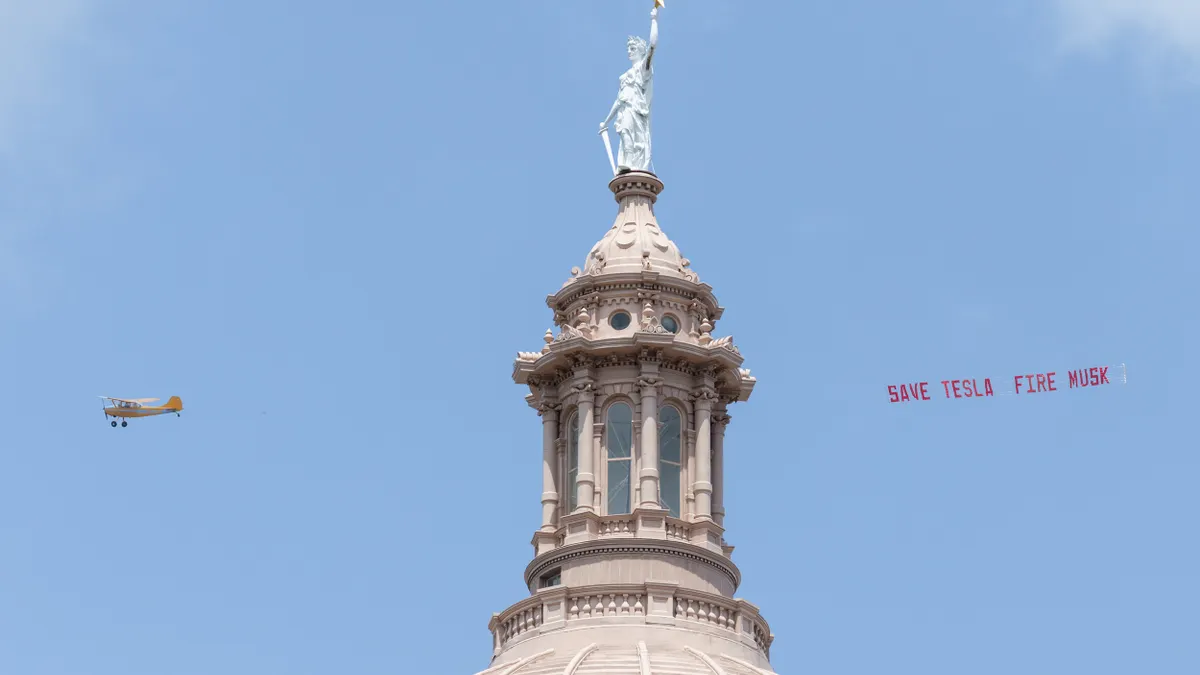The story behind a lawsuit against the Public Company Accounting Oversight Board that was dismissed last week — after a related PCAOB investigation into an unnamed Texas accounting firm was dropped — spotlights recent challenges mounted against the audit watchdog.
The complaint, John Doe Corporation v. Public Company Accounting Oversight Board filed March 27 by the accounting firm using a pseudonym, sought injunctive and declaratory relief from the board’s investigation into the firm’s practices, asserting that the process was “not just abusive, retaliatory, and excessively burdensome,” but that it was “structurally unconstitutional.”
In less than a year, the case wound its way through the courts, first being transferred from the Texas federal court to the U.S. District Court for the District of Columbia at the request of the PCAOB before then being returned to Texas on Nov. 19. after an appeals court granted the plaintiff’s request, according to a court filing.
But before the case could be heard, the firm received a letter from the PCAOB on Dec. 27 indicating it had closed its investigation and was not recommending any enforcement, leaving both parties in the case to agree that the claims are “moot” and asking the court to dismiss the case, according to a Jan. 6 stipulation of dismissal. A judge entered an order dismissing the case on Jan. 7.
Outside of that agreement, each side appears to have different views of the case’s outcome.
Attorneys for the accounting firm heralded the dismissal and investigation probe as a win. The New Civil Liberties Alliance, a group which provides pro-bono litigation challenging what it calls “unlawful power” of state and federal agencies and which is co-counsel for the accounting group, claimed to have defeated an “illegal investigation” and vowed to continue fighting the PCAOB, in a Jan. 7 press release.
“Although NCLA wanted an authoritative decision from the Court declaring PCAOB’s investigation unconstitutional, the next-best alternative was having the Board close its investigation in the face of our constitutional challenges,” Russ Ryan, NCLA’s senior litigation counsel, said in a statement included in the release. “It’s a complete victory for this client, but NCLA will continue its ongoing fight to end PCAOB’s Star Chamber proceedings against our other clients.”
The NCLA currently has two other cases pending against PCAOB, Ryan said in an interview. He noted that his group doesn’t take a position on whether the PCAOB should exist, but said that if it’s enforcing the law and imposing penalties it needs to do so “in a manner that complies with the constitution and respects civil liberties.”
The group, which has also been challenging government agency power in cases before the U.S. Supreme Court, has ties to powerful conservatives including billionaire Charles Koch, Bloomberg Law reported. An NCLA spokesperson said it is a “partner” with such organizations as Stand Together Trust, which was founded by Koch.
Jacob Frenkel, an attorney with Dickinson Wright who also represented the accounting firm that filed the suit, declined to comment on who funded the complaint. But he noted that he felt the strength of the case and the fact that it was returned to a Texas court helped push the PCAOB to back off its investigation.
“The board is not going to say why they dismissed the investigation,” Frenkel said in an interview. “But we certainly are confident that we had very compelling legal and factual arguments and that the fact that we were successful to get the case redomiciled in Texas in the Fifth Circuit undoubtedly was a factor in the PCAOB’s determination not to pursue the investigation.”
In contrast, the PCAOB downplayed the lawsuit’s dismissal, saying in an emailed statement that it “in no way addressed, analyzed, or affirmed the merits of the arguments Plaintiff made in that case.” Asked why the probe was closed, the statement sent by a spokesperson did not address the specifics of the case.
“In every PCAOB investigation, the staff of the Division of Enforcement and Investigations develop the facts of the matter and apply those facts to the law. DEI staff then make an informed decision about whether to pursue the investigation further based on the facts and the law. This investigation was no different,” the statement said.
The probe’s conclusion last month appears to come about three years after it started with an informal request for information to the firm in 2021, with the board issuing an Order of Formal Investigation into the firm on Aug. 16, 2022, according to court documents.
Among the objections to the investigation noted in an amended complaint filed Aug. 9, is that the probe scrutinized John Doe’s audit of crypto-assets accounting, despite the fact the board hadn’t set any auditing standards prior to the time of the audits that were under scrutiny.
“Without Board standards or rules providing fair notice, auditors are left only with the option of selecting from a wide range of opinions on the best method of auditing assets of crypto-related issuers,” the filing states. The Financial Accounting Standard Board didn’t finalize standards for crypto until 2023.
The challenges to the PCAOB, a body created by the 2002 Sarbanes-Oxley Act in the wake of the Enron accounting scandal, come as some are bracing for the regulatory organization to be potentially weakened or sidelined by the incoming Trump administration rather than dissolved, CFO Dive previously reported. Robert Pawlewicz, assistant professor of accounting at the Robins School of Business for the University of Richmond in Richmond, Virginia, said he expects a downshift of enforcement rather than more litigation against the PCAOB.
“I would NOT expect to see more of these lawsuits against a new PCAOB Board because I expect that the new Board and, likely, new Investigations and Enforcement Director, to ease enforcement behind the scenes,” Pawlewicz said in an email. “The current Board and Enforcement Division have been very aggressive and I don’t expect that to continue.”






















